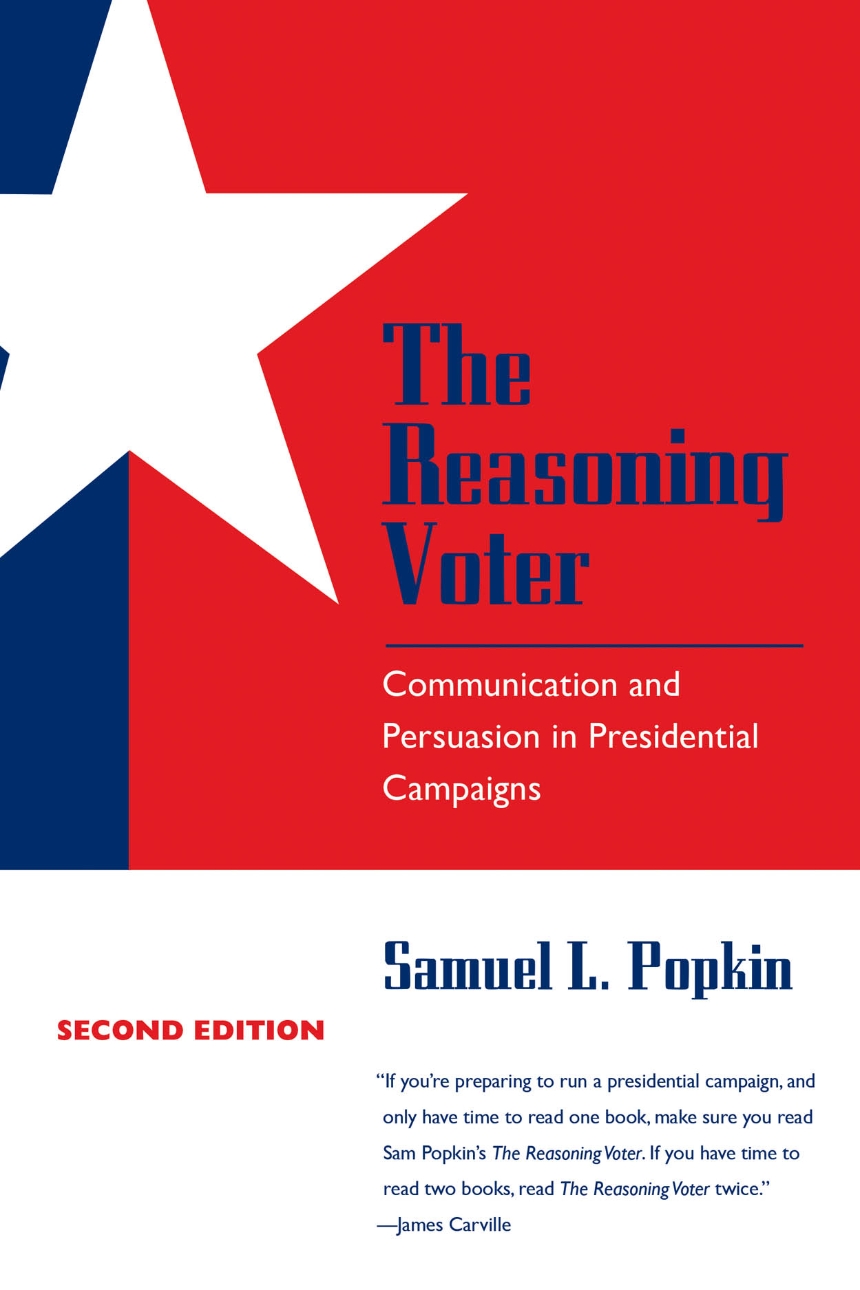The Reasoning Voter
Communication and Persuasion in Presidential Campaigns
9780226675459
9780226675442
9780226772875
The Reasoning Voter
Communication and Persuasion in Presidential Campaigns
The Reasoning Voter is an insider’s look at campaigns, candidates, media, and voters that convincingly argues that voters make informed logical choices. Samuel L. Popkin analyzes three primary campaigns—Carter in 1976; Bush and Reagan in 1980; and Hart, Mondale, and Jackson in 1984—to arrive at a new model of the way voters sort through commercials and sound bites to choose a candidate. Drawing on insights from economics and cognitive psychology, he convincingly demonstrates that, as trivial as campaigns often appear, they provide voters with a surprising amount of information on a candidate’s views and skills. For all their shortcomings, campaigns do matter.
"Professor Popkin has brought V.O. Key’s contention that voters are rational into the media age. This book is a useful rebuttal to the cynical view that politics is a wholly contrived business, in which unscrupulous operatives manipulate the emotions of distrustful but gullible citizens. The reality, he shows, is both more complex and more hopeful than that."—David S. Broder, The Washington Post
"Professor Popkin has brought V.O. Key’s contention that voters are rational into the media age. This book is a useful rebuttal to the cynical view that politics is a wholly contrived business, in which unscrupulous operatives manipulate the emotions of distrustful but gullible citizens. The reality, he shows, is both more complex and more hopeful than that."—David S. Broder, The Washington Post
332 pages | 26 tables | 6 x 9 | © 1991
Political Science: American Government and Politics, Political Behavior and Public Opinion
Reviews
Table of Contents
Acknowledgments
Prologue
1. The Reasoning Voter
2. Acquiring Data: The Process of Becoming Informed
3. Going without Data: Information Shortcuts
4. Going beyond the Data: Evidence and Inference in Voting
5. Attributable Benefits and Political Symbols
6. Expectations and Reassessments: Surges and Declines in Presidential Primaries
7. The Democratic Primaries of 1976: Watergate and the Rise of Jimmy Carter
8. The Republican Primaries of 1980: George Bush, Ronald Reagan, and the Legacy of ’76
9. The Fight to Redirect the Democratic Coalition in 1984
10. Conclusion
Notes
Biography
Index
Prologue
1. The Reasoning Voter
2. Acquiring Data: The Process of Becoming Informed
3. Going without Data: Information Shortcuts
4. Going beyond the Data: Evidence and Inference in Voting
5. Attributable Benefits and Political Symbols
6. Expectations and Reassessments: Surges and Declines in Presidential Primaries
7. The Democratic Primaries of 1976: Watergate and the Rise of Jimmy Carter
8. The Republican Primaries of 1980: George Bush, Ronald Reagan, and the Legacy of ’76
9. The Fight to Redirect the Democratic Coalition in 1984
10. Conclusion
Notes
Biography
Index
